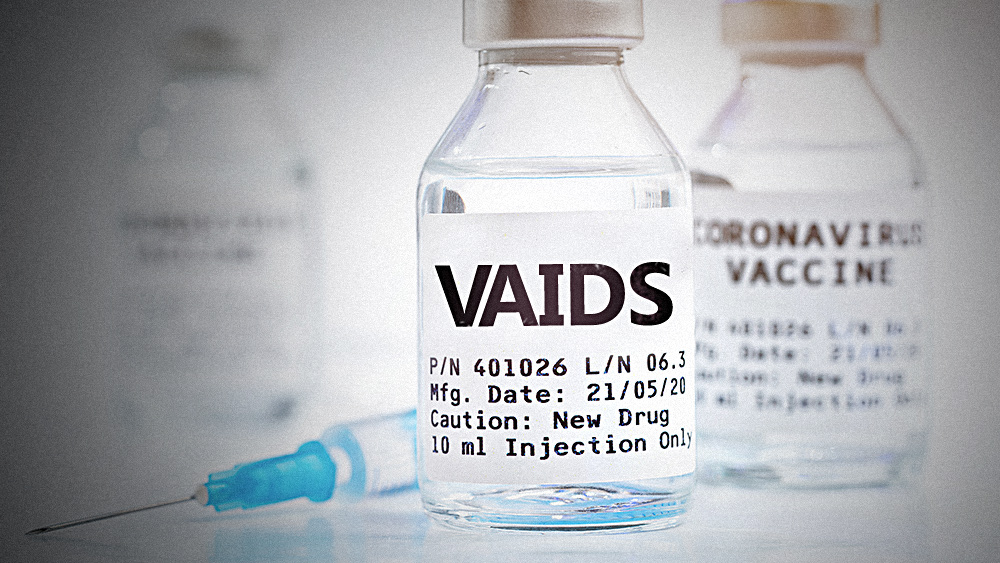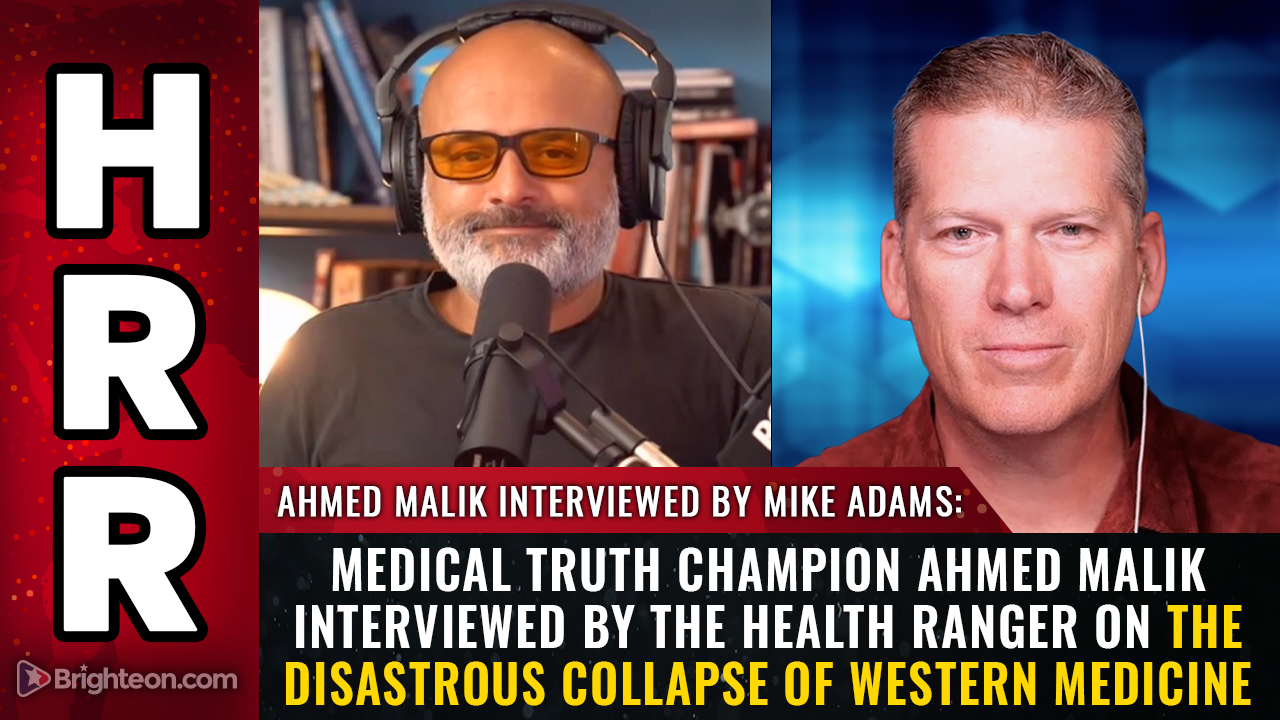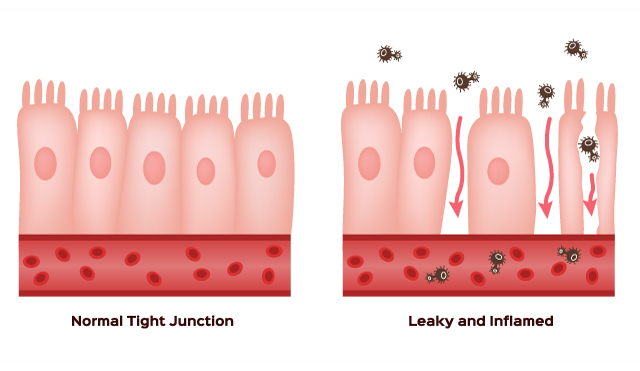Organ harvesting exposed: The chilling reality of ‘brain death’ and how hospitals profit from the living
07/15/2025 / By Lance D Johnson

You’re lying on the cold operating table, paralyzed but aware. The anesthesia was supposed to dull your mind and erase sensation — but something went wrong. Instead of slipping into unconsciousness, you were left paralyzed, unable to move a muscle, twitch, or scream. Monitors beep around you, confirming your “brain death” to the surgeons, but inside, your mind screams in fleshly prison. Your loved ones are mourning, tugging at your arms, hoping you will twitch or move a muscle. But they’ve been brushed aside, for you are an organ donor, and the ICU team is preparing to harvest (procure) your organs for preservation and transplant. They only have so much time to retrieve the organs, so they speed up the process, pushing the family aside.
The scalpel glides across your abdomen, splitting skin and muscle with clinical precision. You feel the burn of the blade, the tug of flesh parting — but no one hears your silent agony. The surgeons work efficiently, talking over your body as if you aren’t there. And technically, to them, you aren’t. You’re just a vessel marked for salvage, your organs set to be preserved and delivered to wealthy, foreign recipients who will pay a high price to acquire your organs.
You didn’t have health insurance, so you were perceived as a high cost when you initially came into the emergency room. But when you first arrived, the ER doctors saw your vulnerabilities; they saw the signs of brain swelling and impending brain death, and they knew your were an organ donor. They knew exactly how long it would take before you could become “brain dead” and they knew how to delay proper medical care to get what they wanted out of you.
Now, fingers probe beneath your ribs, shifting vital organs that should have never been touched by outside hands. Your liver is lifted, connections severed; you feel every tug, every snipped vessel like electric shocks to your core. Your skin is grafted; your eyes are plucked; arteries carefully procured. Your lungs collapse as they’re taken, leaving you suffocating while your still-living brain starves for air that will never come.
You feel the rhythmic thud of your own heart — once your life’s metronome — now squeezed by a surgeon’s grip. Cold solution flushes through it, distancing it from your body as it slows… stops… and is lifted away. Your consciousness doesn’t die with it. Trapped in a failing nervous system, you spiral into a void of pain and isolation as the world moves on without you.
Doctors declare the harvest a success. Your organs will live on in strangers. But you — what’s left of you — linger in the mangled remains of flesh and bone, aware until the last spark of brain activity flickers out…
Organ donation is shrouded in deception
The medical industry’s push for organ donation is shrouded in deception, with hospitals exploiting legal loopholes to declare patients “brain dead” while their hearts still beat. Behind the sterile operating rooms and altruistic rhetoric lies a brutal truth: Doctors are manipulating death definitions to harvest organs from unsuspecting donors — some of whom may still be conscious during the procedure. The rise of normothermic regional perfusion (NRP) reveals a sinister blueprint for bypassing ethical safeguards, threatening the very sanctity of human life in the name of transplant profits. To make matters worse, some patients presenting to emergency rooms could be saved from progressing brain swelling and impending brain death, but their case is dismissed until it’s too late — allowing ICU teams to pronounce them brain dead and begin harvesting their organs.
Key points:
- Hospitals increasingly rely on normothermic regional perfusion (NRP) to artificially induce brain death after declaring circulatory death, bypassing legal and ethical protections.
- Doctors restart hearts after clamping blood flow to the brain, raising the question: Can a corpse’s heart beat on its own?
- Ethicists warn that NRP violates the “dead donor rule” and exploits vulnerable populations, particularly drug overdose victims.
- Lack of informed consent means families unknowingly surrender loved ones to procedures they would never approve if fully informed.
- Global demand for organs outpaces supply 10:1, putting pressure on medical systems to keep up.
- Alternatives exist, but financial incentives and organ demand drive the continued use of NRP despite widespread condemnation from medical professionals.
The macabre science behind “brain death” and organ harvesting
For decades, transplant teams have operated under two legal definitions of death: circulatory death (heart stops) and brain death (no measurable brain activity). However, the use of normothermic regional perfusion (NRP) shatters both definitions by artificially sustaining organ viability after death is declared. The process is chilling in its precision: First, a patient is disconnected from life support and their heart stops. Then, surgeons clamp blood flow to the brain — ensuring irreversible brain death — before restarting the heart for harvesting.
As Dr. Heidi Klessig, a retired anesthesiologist, warns: “The moment circulation is restored, the patient is no longer ‘dead’ by circulatory standards. But because the brain’s blood supply is deliberately cut off, they’re now legally classified as brain dead.” This legal sleight-of-hand allows hospitals to harvest organs from donors who, by any traditional measure, were still alive moments before.
A system built on deception
Despite condemnations from the American College of Physicians and bioethicists, NRP continues expanding across U.S. hospitals. Laboratories like the University of Nebraska openly document the procedure: “Ligation of blood vessels to the head ensures no blood reaches the brain… Once circulation restarts, the heart will beat.”
Yet families signing donor forms are never told their loved one’s heart could be restarted post-mortem, nor that surgeons may deliberately induce brain death to legally justify extraction. As Dr. David Magnus notes: “If you’re relying on obfuscation to defend a medical practice, you’ve already admitted it’s unethical.”
The Uniform Determination of Death Act (UDDA) once served as a safeguard against premature death declarations — but NRP renders it meaningless. With transplant programs prioritizing profit over ethics, public awareness is the only remaining defense. As bioethicist Lauris Kaldjian warns, “NRP weaponizes medical technology to redefine death, sacrificing ethical boundaries for organ quotas.”
Global demand for organs outpaces supply, putting pressure on hospitals
The global demand for organs far outstrips the supply, with fewer than 10% of needed transplants performed annually despite over 150,000 procedures worldwide (Global Observatory on Donation and Transplantation, 2020). This severe shortage fuels a desperate — and often exploitative — market. Hospitals and transplant centers face mounting pressure to secure organs amid rising waitlists, while some patients, driven by survival, turn to illegal means, paying exorbitant sums in underground transactions that prey on the poor.
What can be done?
- Review your donor status. Go to the local DMV or associated institution and remove organ donor status. If hospitals won’t disclose the truth about organ procurement and the processes that make it more efficient, opt out entirely. Loved ones go through hell watching this process take place in hospitals, and there is NO comfort knowing that their love one’s organs went to save other lives, especially when their own loved one could have been saved.
- Demand legislative bans on NRP. Nations like Australia have already prohibited it — so why hasn’t the U.S.?
- Spread awareness. Millions unknowingly consent to procedures that may harvest organs from living bodies.
The choice is clear: Until full transparency is forced upon the transplant industry, no one is safe from becoming another statistic in the dark economy of organ harvesting. Medical malpractice and wrongful death cases can lead to organ harvesting operations, making families question the intent of medical professionals from the start. It’s long past time to audit hospital systems to better understand their procedures preceding brain death diagnoses and the protocols that lead doctors to make that diagnosis.
Transparency is needed to understand the procedures in the preservation and transport of organs and who gets precedence for them after they are harvested. Organ procurement should not be an industry, and layers of accountability should be installed within hospital systems to hold doctors accountable if they participate in money making schemes — whether these are set up officially inside hospitals or whether industry forces are applying pressure from outside hospital systems. What appears compassionate on the surface comes with a terrifying dark side, and families are left mourning in the horrors.
Sources include:
TransplantObservatory.org [PDF]
Submit a correction >>
Tagged Under:
bioethics, Brain death, circulatory death, dead donor rule, Heidi Klessig, hospital corruption, medical deception, medical malpractice, medical violence, normothermic regional perfusion, organ donation, organ harvesting, Organ Trafficking, rigged, transplant industry, Uniform Determination of Death Act
This article may contain statements that reflect the opinion of the author





















